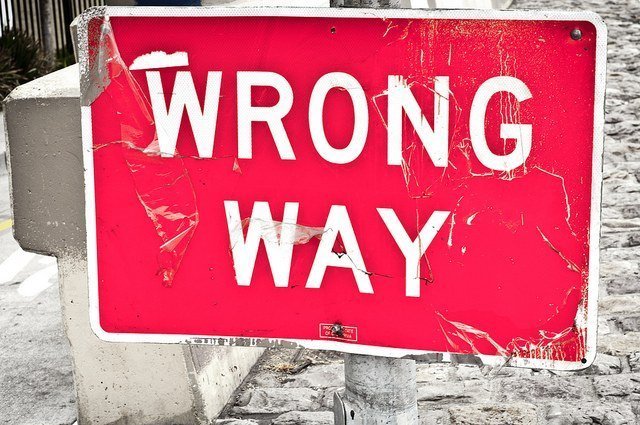
"What website mistakes do small businesses make?" This was one of the many questions asked at the Small Business Tech Panel at the Warehaüs, a coworking space in Holland, Michigan in March 2014. Here's an expanded version of the answer I gave.
The items (in no particular order) are as follows:
Business websites exist to sell, directly or indirectly. Businesses have goals for their site, such as convincing prospects to hire them, request a quote, purchase a product, etc. Businesses often lose sight of this and get caught up in the visual design (logo, colors, fonts, etc.). They ask for a website that "pops" (whatever that means) rather one that sells.
There are several items that go into optimizing a website for sales. These can include items related to the website itself and items related to marketing the website.
We focus on websites, and partner with digital marketing specialists as necessary.
As I said in my post What does a small business website need?,
The number of visitors viewing the Web from mobile devices (phones, tablets, etc.) continues to increase... If your site isn’t mobile-friendly, mobile device users may leave the site. You may lose a prospect, and it’s also sending a negative signal to Google.
I still see small businesses launching fixed-width websites in 2014! These sites are difficult to use on small screens, because they're either tiny or you need to zoom in and drag around to see everything. This is not a good user experience.
I don't expect small businesses to understand the technical aspects of their websites, but they should work with someone who does. I'm talking about items such as
I see a lot of WordPress sites that are highly vulnerable to hackers because they're running outdated software, or are running terribly slowly because of inadequate hosting or poor configuration. I also have businesses contact me because their sites are broken, but they have no backups. All these issues can be avoided by having someone monitor and optimize the technical aspects of the site.
We offer WordPress maintenance, and we assist with other technical areas of WordPress sites.
It's usually painfully obvious when a small business site includes stock photos. The worst ones are shots of people who aren't employees or customers of the business. It's especially bad when the models in the photos are demographically different from the business' actual employees or customers. Part of a website's job is to make a business seem authentic and credible, but stock photos of strangers make visitors question your legitimacy.
I understand a small business' desire to appear professional, but it often results in cold, distant websites with boring copy and stock photos. Write personal, engaging copy, and include actual photos of the people in your business. You may need a copywriter or photographer, but the result is worth it. Also, reveal some of your personality (hobbies, interests, fun company events, etc.) in your pages and blog posts. You don't need to stick to text either; use photos and video too.
As I mentioned earlier, small businesses tend to focus on design over content and functionality, leading to a design that's so busy and cluttered that it detracts from the content. The vast majority of people come to a business site for its content, not its design.
Small businesses often want to take all their marketing material and put it on their website. This often results in pages that are so packed with info that visitors give up before they start. I recommend giving just enough info on top-level pages (Home, About, Services, etc.) to persuade visitors to click deeper into the site. You can always give more info later, once you've drawn them in.
I’ve written about why your business website needs a blog. Blogs help build relationships, establish credibility, aid in marketing, and have SEO benefits.
Some small businesses have a blog, but it's not on their domain. For example, let's say the business' site is at smallbiz.com. They might have their blog at smallbiz.wordpress.com, or smallbiz.blogspot.com. This looks unprofessional, and it's also preventing your domain from realizing the blog's SEO benefits. It's better to have the blog on your domain, at smallbiz.com/blog, for example.
There are many other website mistakes small businesses make, but these are a few to get you started. For other ideas, see my post What does a small business website need?
Do you agree or disagree with these? What website mistakes do you see small businesses make? Leave a comment.
Featured image by David Goehring
Awesome yet most informative article I found on the Internet. Thanks
I'm glad you found it useful, Akshay.
Hi Chad,
Interesting facts. Most of the people make some of these mistakes in most common.
Thanks again for sharing the worth reading post.
You're welcome, Mustafa! I'm glad you found the post interesting.
I agree that it can be obvious when sites use stock photos. Personally, I'm more likely to truck businesses that have authentic looking websites. Although it probably takes a little more work, I imagine it's worth it, so people come back to your website.
Yes, Becca, authentic photos establish trust far more effectively than stock photos. And trust is important in business relationships, so it's worthwhile to be authentic!
Great tips Chad,
I agree this point Too much content on each page. too much content looks good on a blog, not on the service page. I have seen a lot of websites whose aim is to put too many keywords with long content, they don't focus on better UI & UX.
Thanks for commenting, David. As explanation to visitors who aren't familiar, I'll just note here that UI is user interface (the design of the website), and UX is user experience (how a person interacts with a website).